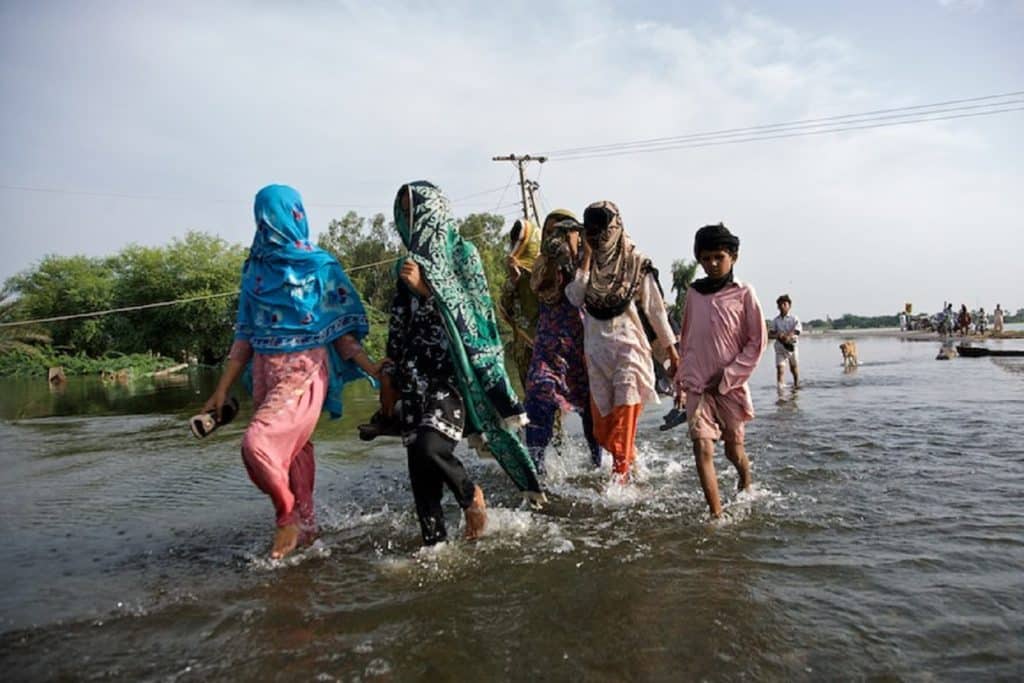UN Women is focusing their response to the flooding in Pakistan on the needs of women.
Since June, heavy monsoon rains in Pakistan have left up to one third of the country under water. Overall, this record flooding has affected 33 million of the country’s estimated 240 million inhabitants. There are about 6.4 million people in need of assistance.
As UN Women notes, during natural disasters such as this, women, girls and women with disabilities face the biggest challenges.
The needs and vulnerabilities of women and girls are often distinct and in the wake of natural disasters, violence against women sees an increased risk. To empower women in the face of this violence, UN Women says it’s aiming to ensure access to essential services such as legal aid, counselling and other protection support.
This support is critical as Pakistan’s deadly flooding is shattering livelihoods. Around 1.1 million houses have been washed away and vital infrastructure like schools and health facilities have been destroyed, leaving vulnerable people at risk.
One woman greatly affected is Fatimah Gul, who lost her house and most of her belongings to the flood water in Swabi District of the northern province of Khyber Pakhtunkhwa. Gul cannot afford to rebuild as she was already living on charity money and doesn’t have the income for basic necessities.
“This sudden flood has destroyed everything in my life,” says Gul. “I don’t have utensils and clothes. My bed and house are damaged.”
Another woman from the Swabi District, Romania Bibi has had a similarly traumatic experience to Gul, where she has lost her privacy and become exposed to danger from the flooding.
“I cannot sleep at night because the flood damaged the boundary walls of my house,” says Bibi. “I am using bed sheets to cover the broken walls.”
Critical to women like Gul and Bibi is the relief provided, including distributing non-food items such as shelter, kitchen utensils, medical aid and sanitary products. They also provide cash grants worth PKR 20,000 (133 AUD) each to the most vulnerable women— young girls, women head of the house, women without income and women with disabilities.
UN Women says it is planning to increase its flood response in the coming days by scaling services like temporary women’s centres, services for the prevention of and response to gender-based violence (GBV), with a focus on psychosocial support to GBV survivors. This is meant to provide life-saving relief in Sindh and Balochistan provinces and the Gilgit-Baltistan region.

